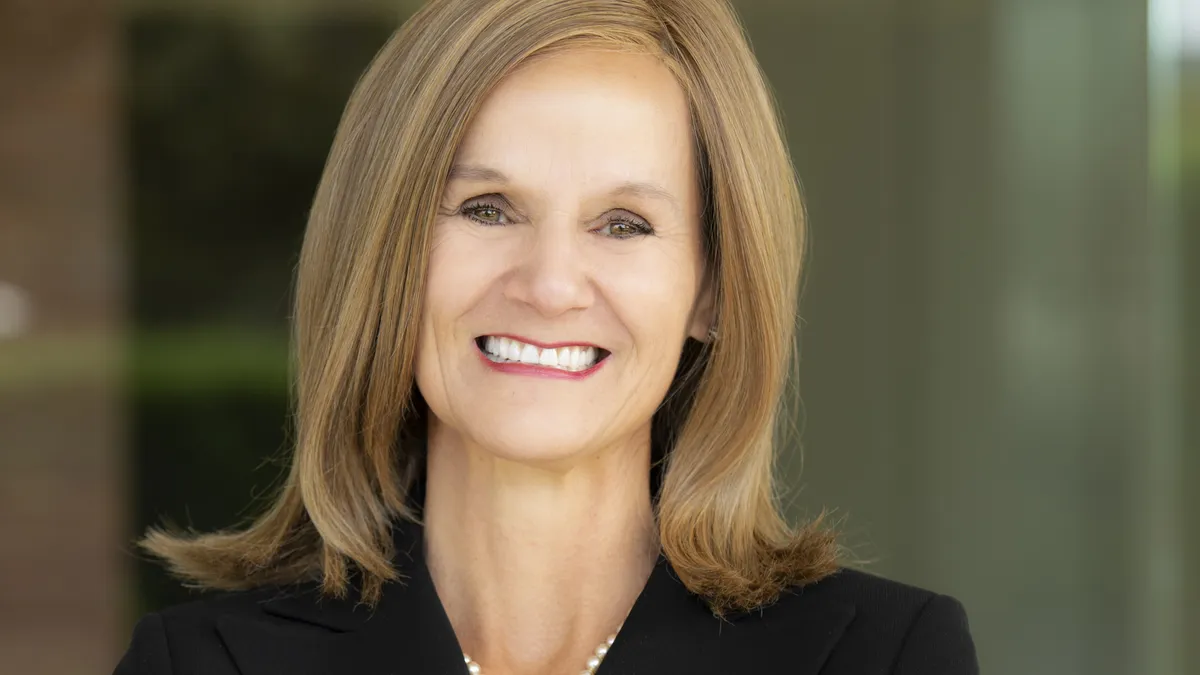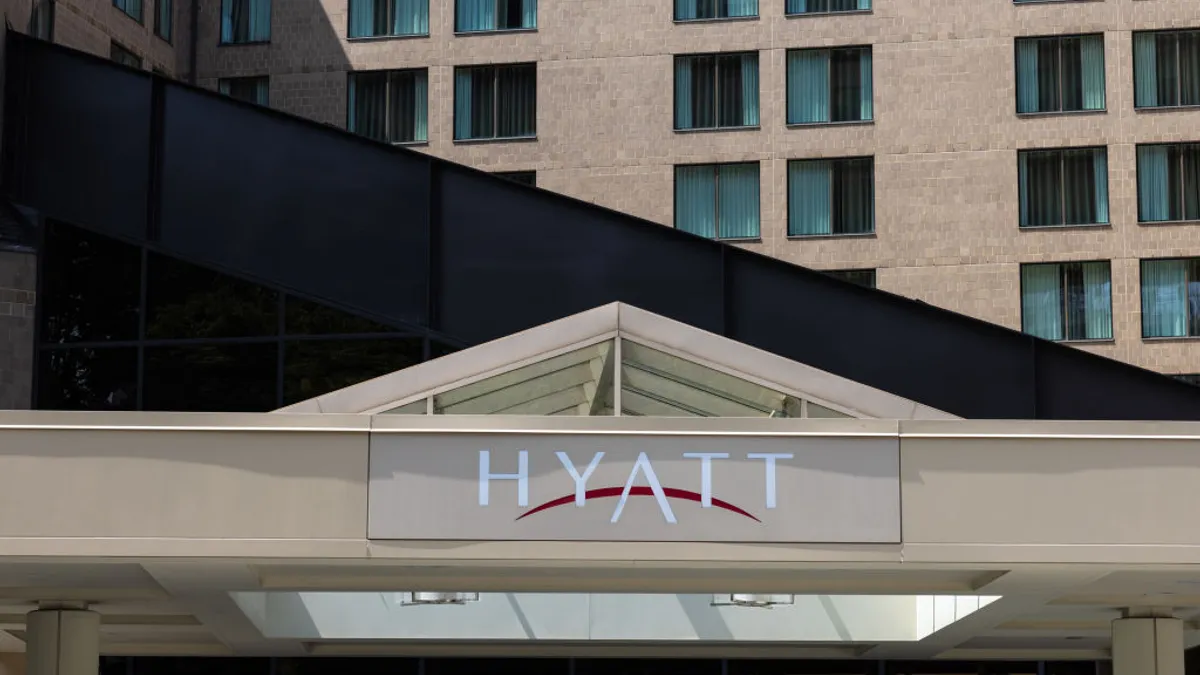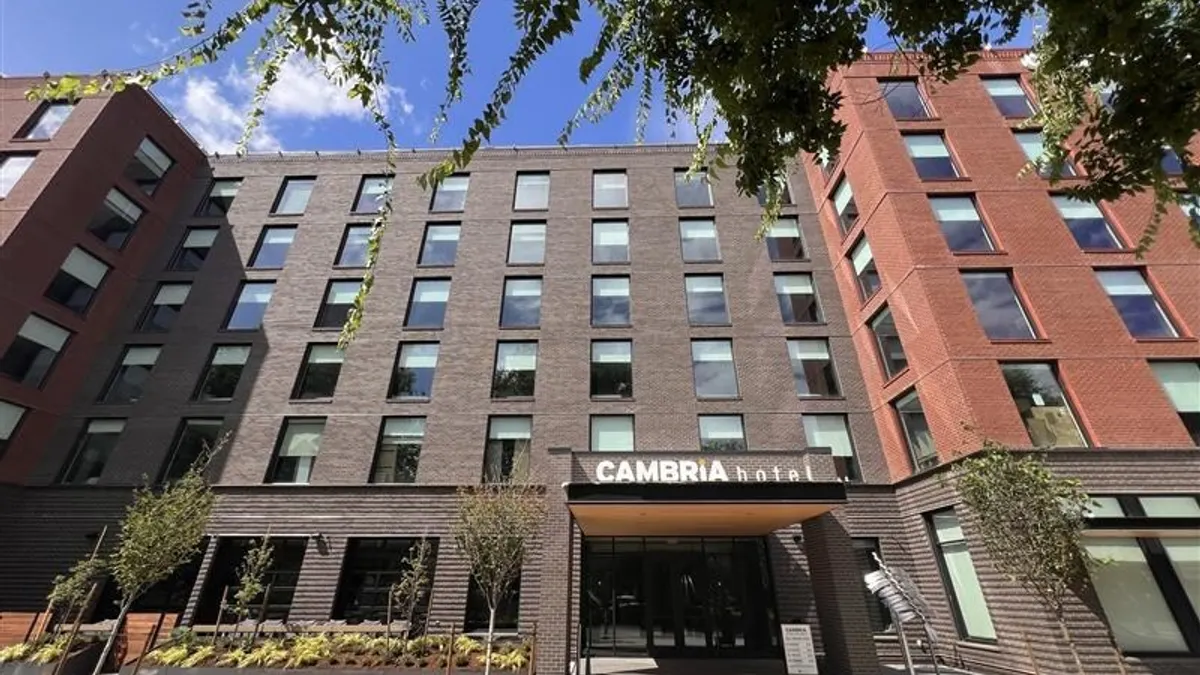Last week, Choice Hotels International took its bid to acquire Wyndham Hotels & Resorts public, and Wyndham’s board of directors unanimously rejected the offer.
Choice said franchisees specifically could see lower total cost of ownership and increased hotel profitability through the deal.
Some experts, though, speculated that franchisees don’t stand to reap such benefits.
The Asian American Hotel Owners Association, whose nearly 20,000 members own more than 60% of all hotels in the U.S., expressed “high concern” over the proposed deal in a release distributed shortly after Wyndham rejected Choice’s bid, with association President and CEO Laura Lee Blake pledging support for Wyndham’s rejection of the proposal.
In the release, AAHOA called on federal agencies, including the Federal Trade Commission, to “do a thorough investigation to fully protect competition” in the economy and limited service segment of the hotel industry, which a majority of Choice and Wyndham hotels fall under.
Blake sat down with Hotel Dive to share franchisees’ fears surrounding the merger — and what she believes Wyndham franchisees could lose if it goes through.
This interview has been edited for clarity and brevity.
HOTEL DIVE: Why are franchisees fearful of a Choice-Wyndham merger?
LAURA LEE BLAKE: A merger with these two very large hotel franchisors would mean 16,500 hotels across 46 brands all come under one franchisor. More impactful is the fact that they are both in the economy and limited service segment, which is where the vast majority of our members have their hotels. To suddenly have one franchisor have such dominance and control is frightening. And the reason I say that is it limits the options, the choices that the franchisees might have.
To suddenly have one franchisor have such dominance and control is frightening.

Laura Lee Blake
AAHOA President and CEO
Our largest concern right now is for the Wyndham franchisees. When you think about what it takes to become a hotel franchisee it first involves finding the land or existing property and investing basically your life savings to develop or open the hotel. A franchisee is usually getting loans from the bank for millions upon millions of dollars. And then they have to make a decision on which franchise or brand they want to put on that hotel, they adopt the brand's operations, franchise agreement, property management system and reservation system. There's a certain culture with each brand.
For the Wyndham franchisees, who chose the Wyndham brand and are part of that community, now all of a sudden they’ve found out that they might have to be a Choice franchisee. This means a whole new culture, new operations and different property management systems. Everything suddenly changes.
These agreements are 20-year agreements, and to get out of them there are major obstacles. If you are unhappy with your chosen brand, you're looking at paying liquidated damages, usually up to several hundreds of thousands of dollars, and three years of royalty fees to terminate early, so that is not an option for many.
In the hotel industry, franchise agreements typically do not have a changing control clause despite that being a standard in a lot of industries now. Everybody recognizes that if there's suddenly a change in the company structure from what you signed up for, then you should have the option to exit. But that's not something that's in these hotel franchise agreements.
And in all fairness, if you're a franchisee as part of this merger and you don't want to go this route, you should be given the option to exit and find another franchise. But since Choice and Wyndham are both economy and limited service hotels, where do the franchisees go? Their options would definitely be much more limited.
I was talking to one of our members and he said in his area, if this merger went through, probably 11 or 12 hotels within a three-block radius would all be under one franchisor. So then it's the concern of the dilution of the brands. That means you’ll have the brands themselves fighting over guests because they are in competition with others under the same franchisor.
In the release, you said, “We have seen in the past the major impact that mergers and acquisitions by the big hotel Franchisor corporations can have on our members as the hotelier Franchisees.” What past merger are you referring to, and what did AAHOA franchisees experience then?
I will use the recent example of Choice when they acquired the Radisson Hotel brand. We heard from several of our members who owned Radisson hotels that it was rough. I believe that Choice delayed the merger for a number of months because they had to figure out how best to implement the operational systems that the Radisson Hotels were using and integrate that with the Choice systems. Then there was news that when there was the data transfer from Radisson Hotels to Choice Hotels, there was a data breach. [Editor’s note: In July, Choice confirmed that guest data from Radisson Americas was compromised as part of the MOVEit file transfer system hack, according to Cybernews.]
We also heard from one of our members that it was not the same culture. The franchisee was used to the small Radisson culture where they had relationships with the executives. Suddenly, they were being added to Choice, and they didn't know the executives or the team. We heard from owners that it was a struggle because it was brand new. And I think change, while we do have to embrace it, it can be very difficult and even very painful. Especially with a business where you're relying on the franchisor to support your family, to support your community, and now suddenly everything is different, and you're trying to learn new systems, and you have to adapt to all of it, maybe without the same resources that you're accustomed to.
How could this merger impact revenues for franchisees?
If this merger were to occur, Choice would have to cover the acquisition financially, and usually these hotel franchisors get their revenues from the franchisees and the guests that are staying in the hotels. So presumably, there could be increased fees to both. Then there may be loss of revenues for franchisees because the guests are trying to decide which of these many brands, that are very similar, they should stay with. The potential increase of fees and the potential decrease of business from the dilution would disrupt the revenues of the individual franchisees.
What is AAHOA’s preferred outcome of the proposed merger?
Our ultimate hope would be that there would be no merger at all. Our second hope would be that if there was a merger, that there was an opportunity for those who are most dissatisfied to exit the system without penalty and without paying hundreds of thousands of dollars and liquidated damages.
How would an investigation by federal agencies, including the FTC, protect franchisees?
The FTC will often get involved if there's a merger of companies or a proposed merger that really creates a bit of a monopoly in a particular industry. We believe that the merger of Choice and Wyndham would definitely create a monopoly within the economy and limited service segment of the industry.
We believe that the merger of Choice and Wyndham would definitely create a monopoly within the economy and limited service segment of the industry.

Laura Lee Blake
AAHOA President and CEO
Experts told Hotel Dive that Wyndham may be holding out for another offer from a different hotel company. Would AAHOA support an acquisition bid by a different company than Choice?
It really depends on the circumstances. Maybe if some of these franchisors that are not in the economy and limited service segments were looking to expand it might be a different situation. The concern is more that Choice and Wyndham are the two dominant players in the economy and limited service segment.
The franchisees have made a specific decision with a lot of diligence and a lot of forethought to which brands, which community and culture, they wanted to be a part of. To suddenly have that pulled out from under them and be told “you're now under another franchise” — that's what's the most difficult.


















